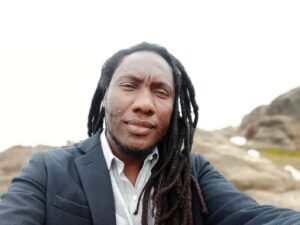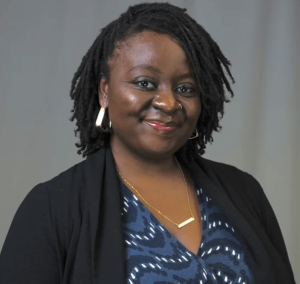Two Graduate Students Gain Dissertation Support Through the RESI-Cantú Graduate Research Fellowship
The Race & Ethnic Studies Institute announces the recipients of the RESI-Cantú Graduate Research Fellowship. A fellowship designed to support current Texas A&M doctoral students complete their dissertation or some significant component thereof.
RESI-Cantú Graduate Research Fellowship
The Race & Ethnic Studies Institute (RESI) and the Carlos H. Cantú Endowment & Scholarship Fund have collaborated to offer this fellowship opportunity for current Texas A&M University doctoral students. The RESI-Cantú Graduate Research Fellowship, on its third award cycle, is intended to support the completion of the dissertation or some significant component thereof. Each recipient will receive up to $5,000 for roughly one calendar year.
This fellowship serves as a learning opportunity, allowing graduate students to develop their grant-writing skills which are key to pivoting into careers in research and industry. The research fellowship will help doctoral students advance in their dissertation by providing financial support for research infrastructure, fieldwork, travel to archives, participant incentives and other pertinent research expenses.
“Our mission is to support ambitious and innovative research that contributes meaningfully to race and ethnic studies. We’re excited to empower developing scholars through this program that was intentionally created to enhance their research capacity, so the focus remains on what’s most important,” says RESI Director, Dr. Wanzer-Serrano.
Meet the RESI-Cantú Graduate Research Fellows
RESI and the Carlos H. Cantú Endowment & Scholarship Fund congratulate Yaír Cuenú-Mosquera, doctoral student in Hispanic Studies, and Robyn Douglas, doctoral student in Clinical Psychology, on their well-developed and thought provoking proposals. Both RESI and the Carlos H. Cantú Endowment & Scholarship Fund are proud to support their development and provide funding for their research.
Yaír Cuenú-Mosquera, a doctoral student in Hispanic Studies, is leading a transnational project titled “Afrourbanite Communities: Representation and (De) Construction of The Afro Experience in Urban Contexts in Afro-Colombian Literatures.” Yair received his Bachelor of Arts in Literature from the Universidad del Valle, Colombia. His research and creation focus on literature originating in the African Diaspora whose thematic involves processes of migration, transformation and empowerment of Afro-descendant communities. His creation provides a voice that has the Colombian Pacific as a place of enunciation, from where he narrates the human condition through stories that are woven between black communities in rural and urban areas. Director of the writing workshop Meridiano de Barrio. Part of his work has been published in Colombia, Spain, United States, Mexico, and France.
Robyn Douglas, a third-year Clinical Psychology doctoral student in the Youth Rising Lab (under the guidance of Dr. Noni Gaylord-Harden), is leading a community-partnered and strength-based project titled “Amplifying Black and Latinx Youths Voices on Community Concerns, Socio-Cultural Strengths, and Mental Wellness in the Southwest: A Photovoice Project.” She received her bachelor’s in psychology from the University of Houston and her master’s in clinical mental health counseling from Sam Houston State University. She is interested in investigating prosocial behavior, critical consciousness, and collectivist action as protective/healing factors for community violence-exposed Black and Latinx youth.
The RESI-Cantú Fellow’s Research Projects
Yaír André Cuenú-Mosquera
 Project Title: Afrourbanite Communities: Representation and (De) Construction of The Afro Experience in Urban Contexts in Afro-Colombian Literatures
Project Title: Afrourbanite Communities: Representation and (De) Construction of The Afro Experience in Urban Contexts in Afro-Colombian Literatures
Abstract: Black characters in urban settings in Colombian literature have been depicted as immigrants, transients, and passing subjects, thus questioning their citizenship. Using Africana theoretical framework, ethnic-racial framing and what I call “afrourbanite communities” (Comunidad afrourbanita in Spanish), my dissertation project deconstructs that affirmation and presents new ways of reading black experiences in urban settings. The essence of this proposal lies in the awareness of the potential of the representations of Afro experiences in literary pieces that later become a sufficiently powerful reference to determine social perceptions on such transcendental issues as the idea of citizenship, or the aesthetic representations of the ideas of national identities and belonging.
Robyn Douglas
 Project Title: Amplifying Black and Latinx Youths Voices on Community Concerns, Socio-Cultural Strengths, and Mental Wellness in the Southwest: A Photovoice Project
Project Title: Amplifying Black and Latinx Youths Voices on Community Concerns, Socio-Cultural Strengths, and Mental Wellness in the Southwest: A Photovoice Project
Abstract: Community-partnered, strength-based research approaches can be impactful avenues for healing and wellness for Black and Latinx youth from violence-exposed communities. This project will combine arts-based, qualitative, and participatory action research methods to explore the sociopolitical and mental health experiences of Black and Latinx youth who live in under-resourced communities within Houston and Galveston, Texas. The project’s primary goal is to provide an outlet for Black and Latinx youth to share their lived experiences as both participants and co-researchers and empower them to become positive change agents within their communities. This project will aim to enable Black and Latinx youth to capture and reflect on their community’s cultural strengths and concerns, gain insight into their mental health needs, promote their critical consciousness about important community issues, and potentially reach policymakers and public servants who can be mobilized to help youth create impactful change within their communities.
